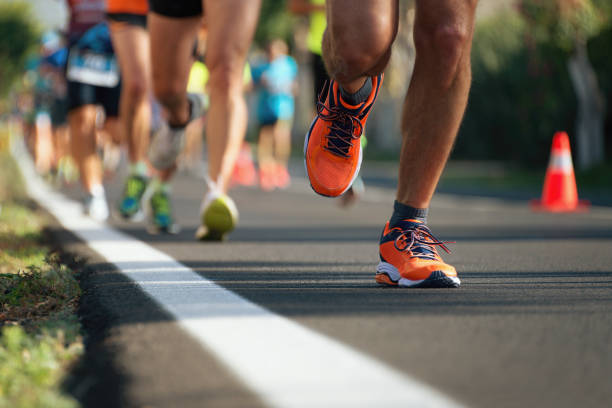July 10, 2023

Are you up for the next step in your triathlon training? A healthy diet is
one of the key factors to optimizing performance.
No matter if you're a veteran triathlete or are just beginning in the sport,
ensuring your body is fueled with the right nutrients can make all the
difference in your endurance, speed, as well as overall performance.
In this article we'll look at the research of nutrition for triathlons and
offer helpful tips on fueling your body for optimal performance.
In everything from pre-race food and snacks to recovery strategies and
nutrition after the race The entire spectrum is covered.
In the end you'll be equipped with the information and tools you need to take
your triathlon performance to the next level, and achieve your goals.
Let's look at how to prepare yourself for triathlon success.
Understanding the Importance of Proper Nutrition for Triathlon
It is impossible to do a half-hearted workout and expect a top performance at
the event. That's why understanding the importance of proper nutrition for
triathlons is vital. Take a look at http://terazsudety.pl/triathlon-stronie-slaskie-mistrzowski-debiut-juz-15-16-sierpnia/
web site if you need details information about triathlon event.
The right fuel can make a world of difference in your recovery from training
as well as general performance. For triathletes, you need to eat to boost your
endurance as well as power and provide your body the nutrition that it requires
to function to its fullest.
The training for triathlon is very intense and it is possible to get injured
or experience burnout, and suffer an unsatisfactory performance if the nutrition
isn't right. Your body needs a healthy intake of carbs, protein as well as
healthy fats in order to power your training and strengthen the muscles.
These foods provide the power and energy you need to train longer, harder and
more efficiently. By following a proper nutrition program it is possible to
optimize the training you do and give your body the support that it requires to
function at its peak.
Making Your Menus for Pre-Race Food as well as Snacks
Plan your meals and snacks prior to a race in order to be prepared for the
demands on your body during the race.
The days prior to the race, focus on eating meals that are abundant in
carbohydrates such as whole grains, fruit, and other vegetables. They will build
up glycogen storage in your body that will supply your body with the fuel it
require to complete the course.
Make sure you eat a lower-fat and high in fiber breakfast before the race.
These nutrients could cause digestive discomfort, which can be uncomfortable.
Instead, concentrate on eating basic carbohydrates, like fruit, or bagel bread
with jam or honey.
Consuming small snacks during your race can help keep your energy levels up
and prevent dropping blood sugar. Pick snacks that are easily digestible like
energy gels, energy drinks or bananas to ensure your body is hydrated and
performing to its highest.
Stay hydrated during training and competition.
In the event of intense physical exercise It is essential to make sure that
you're adequately hydrated in order to maintain peak physical performance. The
effects of dehydration can result in a reduction in blood volume which could
result in a decrease in oxygen flow to muscle tissue, reduced heart output, or
an increased heart rate. This can lead to tiredness during training or in
running.
To avoid dehydration, it's vital to drink enough water throughout competition
and training. It's recommended that athletes drink at least 16-20 ounces water
every between two and three hours prior to training and another 8-10 ounces
10-20 minutes before exercising.
When exercising, it's crucial that you drink water regularly in order to
replenish lost fluids. The general rule is that it is recommended to drink 7-10
an ounces each 10-20 seconds throughout your exercise. You want to consume the
equivalent of 20-40 fluid ounces per hour. The individual requirements for
fluids may vary in relation to sweat intensity and intensity of exercise, as
well as the environment.
To determine your specific fluid needs, consider consulting with a sports
nutritionist or medical professional.
Adjust your Macronutrients in order to boost endurance
It's crucial to maintain a healthy balance in your diet between
carbohydrates, proteins, and fats. It's recommended that endurance athletes eat
between 6-10 grams of carbs for every kilogram of body weight they carry each
day. Whole grains, fruits and veggies are excellent sources of
carbohydrates.
Protein is essential during endurance training should not to be
underestimated, because it plays a crucial role in the healing and repair of
damaged muscle tissues caused by training. Fish, lean meat and beans are good
sources of protein.
In addition healthy fats, such as omega-3s can be beneficial in reducing
inflammation and supporting general well-being. It is recommended that 20 to 35%
of all calories in your diet to come from healthy fats found in foods such as
seeds, nuts, and fatty fish.
Posted by: Damion Zavala at
05:18 AM
| No Comments
| Add Comment
Post contains 833 words, total size 6 kb.
35 queries taking 0.0218 seconds, 55 records returned.
Powered by Minx 1.1.6c-pink.









